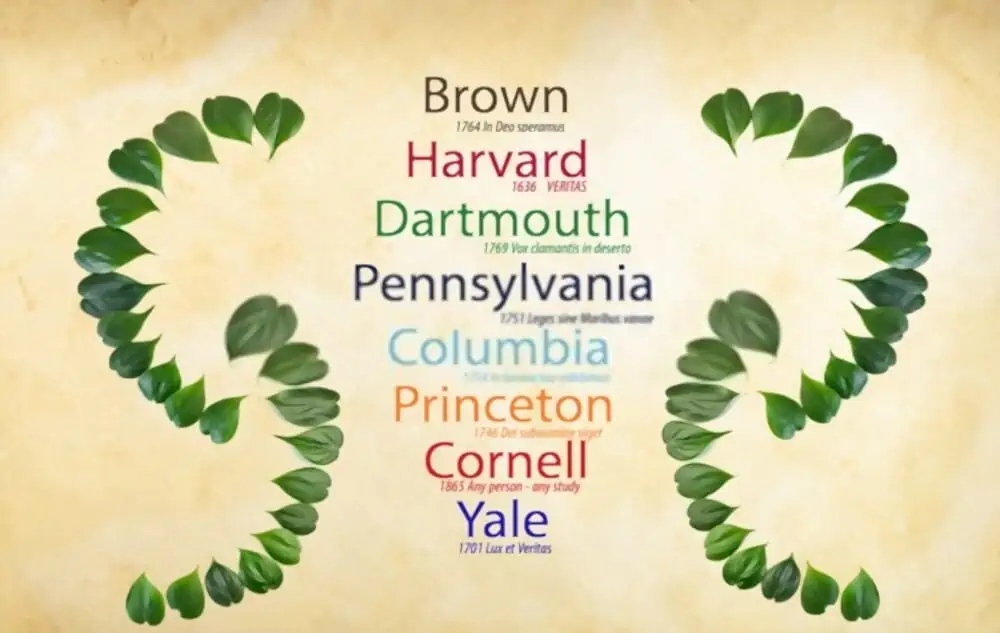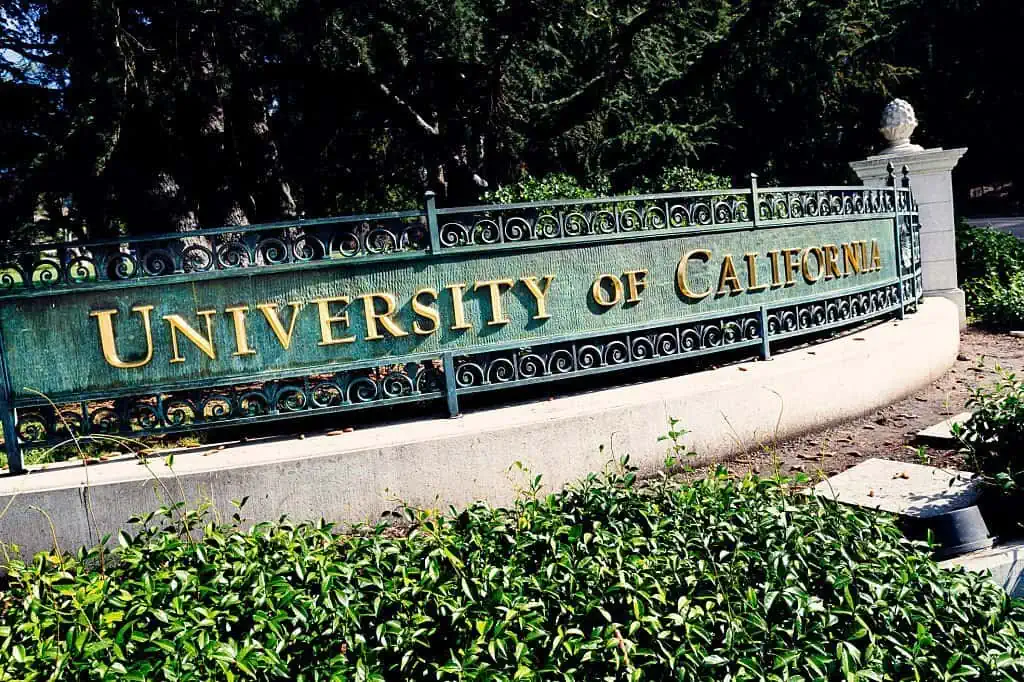All students want to attend a prestigious institution and would go to any length to achieve their aim. In the US, some collegiate associations are held with prestige. Once a school is among those associations, it’s unarguably one of the best.
One such collegiate association is the Ivy League. The Ivy League is a collection of eight top universities. Although their formation aim wasn’t related to academic prowess, the Ivy League is now synonymous with prestigious schools.
UC Berkeley, a top US university, is widely rumored to be among the Ivy League schools, which this article will clarify. At the end of this article, you’ll understand everything you need to know about UC Berkeley and its relationship with the Ivy League.
About the University of California, Berkeley
Before answering whether or not UC Berkeley is an Ivy League school, it’s crucial to understand a bit about the school. UC Berkeley was founded in 1968 and is the first campus among the University of California school systems.
It’s a public land-grant research university and offers over 350 programs spread across 130 departments. Some of the top programs at the institution include Sociology, Art History, Computer Science, and Business Administration. UC Berkeley is famous for Science, Technology, Engineering, and Mathematics (STEM).
It boasts over 45,000 students (undergraduates and postgraduates) and 1,600 faculty members. A sizeable amount of these students are international students, around (17%).
The school is commonly ranked among the best universities in the nation and currently sits 20th in the US News and World rankings. In any rankings for the best public universities, it’s a regular contender for the top sport.
The school is widely known for its research prowess in Science, Technology, Engineering, and Mathematics (STEM). Its Mathematical Science Research Institute is one of the best places for scholars to conduct revolutionary research in the country. Sporting-wise, UC Berkeley offers many sports and is hugely successful at the competitive level.
What is the Ivy League?
In the introduction, you learned that the Ivy League is a collection of eight top universities. However, that’s only half the information because the Ivy League comprises only private universities. The complete fact is that the Ivy League school is an athletic conference with eight private research universities as its members.

The eight Ivy League universities include;
- Columbia University
- Brown University
- Princeton University
- Cornell University
- Dartmouth College
- Harvard University
- Yale University
- University of Pennsylvania
The association was formed in 1954, and seven of its eight members were among the schools founded before the colonial period. Ivy League thrived in what brought them together: sports. Almost all the schools are sports heavyweight, and Princeton University has won 52 NCAA Division I Team titles.
Is UC Berkeley Ivy League?
As you might’ve noticed, UC Berkeley isn’t Ivy League, and this is because of many reasons. First, the Ivy League only comprises top private research institutions, and UC Berkeley is a public university.
Despite being a public university, UC Berkeley has high standards and even betters most Ivy League schools in some aspects. Therefore, many people compare it with schools in the Ivy League.

UC Berkeley is very different from Ivy League schools regarding acceptance rates. It has an 11.6% acceptance rate, making it a competitive school to enter.
Academic-wise, the school is comparable with all Ivy League schools. It has state-of-the-art infrastructures, strong faculty members, and many award-winning alumni. UC Berkeley is the school with the most number of Nobel Laureates in the US.
The campus life and extracurricular activities are also exciting. All these features are why many people rank UC Berkeley in the same class as the Ivy League.
While UC Berkeley isn’t Ivy League, it has its own “Ivy” class, the Public Ivy. The following section will elaborate on Public Ivy and why UC Berkeley is among them.
What are the Public Ivies?
It all began in 1985. Richard Moll, the then-admission officer of the prestigious Yale University, released a book titled “Public Ivies: A Guide to America’s Best Public Undergraduate Colleges and Universities. In the book, he mentioned public schools that offer Ivy League class education but aren’t the art of the association.
Richard Moll graduated from Yale University with a Ph.D. degree in 1959. He served as the admission officer for the school and other public and private universities in the US. His experience with all sorts of institutions prompted him to write the book.
College guide authors Howard Greene and Matthew Greene would make their own Public Ivy list based on Richard Moll’s metric, but this time expanded it to thirty schools. Since then, there have been many additions and inclusions into the schools regarded as Public Ivies.
Richard Moll’s list consists of a total of 15 universities. These universities include UNC-Chapel Hill, University of Michigan, University of Virginia, College of Miami and Mary, University of Texas Austin, University of Vermont, Miami University, and all the University of California campuses.
UC Berkeley is among the founding fathers of the Public Ivies and deserves its spot. Note that, unlike the Ivy League, the Public Ivies are unofficial.
UC Berkeley vs Ivies: Which is Harder to Enter?

The difficulty of entering a particular school is an underrated factor when seeking admission. The best way to evaluate your chances is through the acceptance rate. As mentioned earlier, every Ivy League school has a lower acceptance rate than UC Berkeley.
UC Berkeley’s acceptance rate for the class of 2027 is 11.6%. Cornell University has the highest among all Ivy League universities, with a 10.6% acceptance rate. If you think those numbers are low, wait until you hear that Harvard has a 3.4%.
Despite UC Berkeley being the most accommodating of all the schools, its acceptance rate is still far off the national average of around 68%. These numbers aren’t a fluke; it truly means you’ll have some work to do to become a student of any of these schools.
You’ll have to score relatively high test scores and perform impressively in other academic-related requirements. UC Berkeley doesn’t accept test scores, but its admission process is one of the most competitive in the US.
Which is more Expensive?
The total tuition at each Ivy League school ranges from $57,000 to $65,000. However, if you factor in accommodations and other expenses, you’ll need to spend an estimated $80,000 to $90,000 to attend any Ivy League school. This amount is on the high side because they’re all private schools.
On the other hand, UC Berkeley’s tuition and fees for in-state students is $10,071 for in-state students and $26,358 for out-of-state students. This fee can also be higher if you factor in accommodation and other expenses. UC Berkeley has separate tuition for in-state and out-of-state students because it’s a public school.
If you attend any Ivy League schools, you’ll pay a flat rate no matter which part of the world you are from.
Note that all these schools have financial aid and grants that relieve you of the brunt of funding the tuition. Public schools are known to have the best financial aid, but Ivy League schools have good ones, too. Once again, it’s all about doing your homework on the available ones before deciding if the school is worth it.
Conclusion
UC Berkeley isn’t part of the Ivy League but an elite institution. It has world-class infrastructures, many top programs, and highly intellectual students. The school is also part of the renowned Public Ivies.
The Ivy League tag shouldn’t be the only reason you’ll choose one university over the other. Conduct extensive research on the institution before you decide on whether or not it’s worth it. Although all these schools are elite, some are better than others, depending on your program.

Sam is a brilliant young Nigerian biochemistry student and an aspiring entrepreneur. Despite facing many challenges, he has never lost his passion for learning and drive to make a difference in the world. Read more about him here.